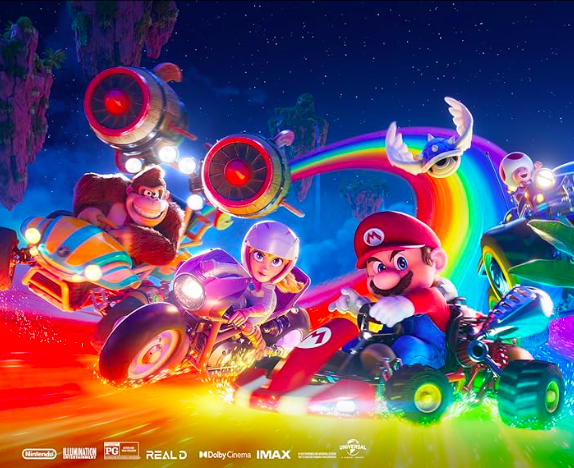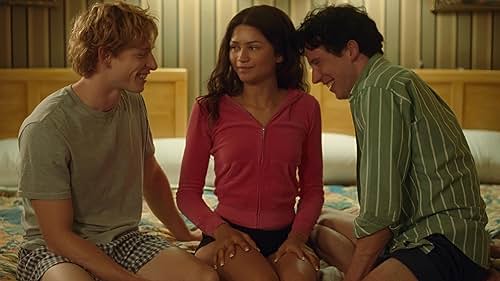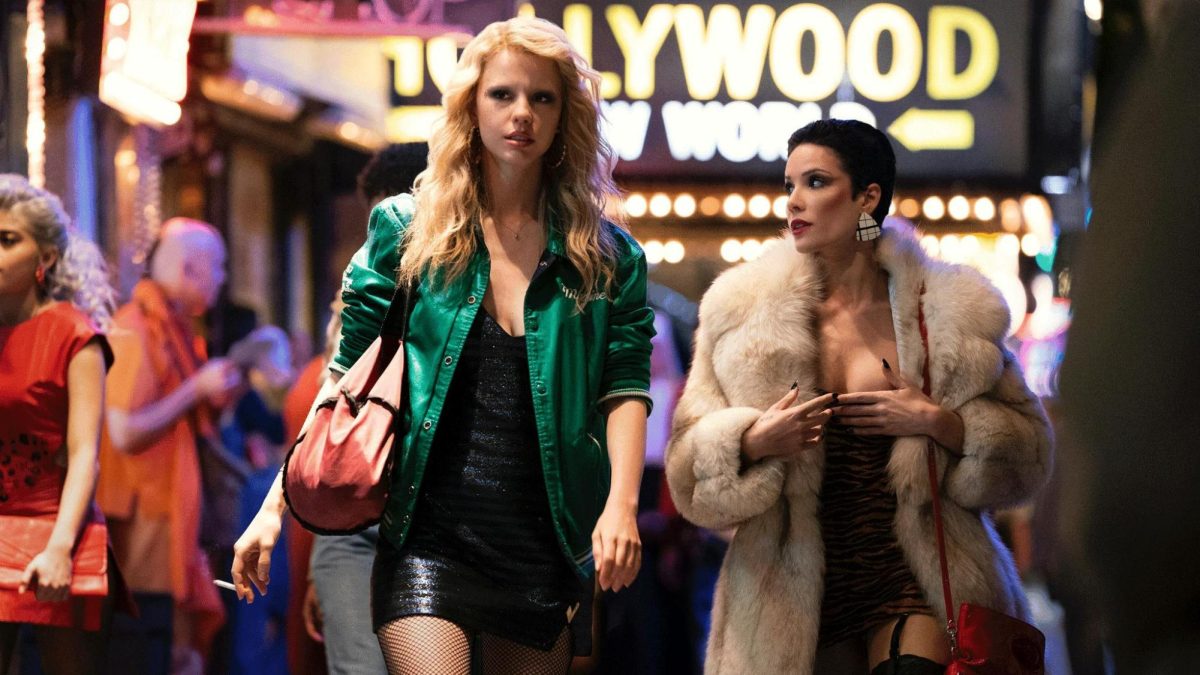
The first “Hunger Games” movie pissed me off. Series author Suzanne Collins helped pen the film’s script herself, but the adaptation was troublingly devoid of the substance that made the book so great. Perhaps the best thing about “The Hunger Games: Catching Fire” is how it vastly improves on the first film. A much-needed changing of the guard served the production extremely well; director Francis Lawrence and screenwriters Simon Beaufoy and Michael Arndt created an adaptation that is both fresh and faithful to the source material. The story ignites as it jumps from page to screen, and thankfully, it sticks the landing.
Early scenes in “Catching Fire” are colored with a palette of cold grays, blues and white. This effectively mirrors the calm before the storm in a wintry District 12, establishing a tension that never lets up. You can really feel the heightened stakes during Katniss and Peeta’s victory tour montage, which picks up after the events of the first film. The canned press statements the two are forced to read barely mask the growing unrest in Panem.
Lawrence fortunately picks up some of the important threads that were left out of the first “Hunger Games,” including the romantic tension between Katniss and Peeta. This is key because it was that dynamic that gives the first part of the trilogy its emotional heft. Katniss and Peeta’s relationship is more seriously acknowledged here, as is the strain it causes between them. This conflict means that when they do eventually reconcile with one another, the moment is especially satisfying.
Collins’ post-apocalyptic dystopian society is also more convincing this time around, with the help of some cleverly placed nuance. The Capitol is an intriguing juxtaposition of savage brutality with technologically advanced grandeur and frightening affluence. The excess of the Capitol’s denizens is still wonderfully over-the-top, their costumes and makeup particularly well-done. Even James Newton Howard’s score occasionally invokes a sense of the thoughtless, almost clichéd aristocracy. The rest of Panem is, as President Snow remarks to Katniss, “a fragile system.” It is clear that the country is teetering on the edge of chaos. A yearning for revolution is rampant everywhere, reaching as far as the cold, battle-hardened souls of the previous victors that are called to action once again.
Strong characters are essential for making this twisted world believable, and the cast of “Catching Fire” delivers. Stanley Tucci, this time decked out with purple eyebrows, a pompadour and ponytail, is absolutely perfect as Caesar Flickerman. He digs deeper into Flickerman’s empathetic interactions with the victors, all while blowing the energetic capitol emcee even further off the deep end of sanity. Elizabeth Banks also adds some more colors to Effie Trinket’s emotional canvas and watching the character get choked up as she passes new orders from the Capitol to her District 12 victors is heartbreaking.
Josh Hutcherson isn’t terrible as Peeta, but the co-star performs as if reading from a distilled version of the script. Peeta is supposed to be brooding and conflicted, but Hutcherson’s portrayal of a thoughtlessly protective nice guy leaves the onscreen character oversimplified and uninteresting. His Peeta is basically the placid teddy bear to Katniss’ fiery Mockingjay. Here’s hoping the final two sequels allow him to more fully inhabit the character.
Jennifer Lawrence remains an undeniable force as Katniss. She is defiant and strong, but Lawrence also very successfully conveys the underlying fragility of the character; in “Catching Fire,” you really believe that she has the shell-shocked psyche of an adolescent who had to fight her way to survive a televised bloodbath. There’s a great moment at the beginning of the film where she is overwhelmed by a sudden flashback to the games and it’s a very compelling depiction of PTSD. Lawrence is entirely devoted to her role and it becomes abundantly clear in the film that only she could play Katniss Everdeen.
At nearly two and a half hours, “Catching Fire” is long, but it flies by at a kinetic pace. Francis Lawrence made the right choice to drop the much-maligned handheld camera technique that Gary Ross used in the previous film. Lawrence keeps the shots steady. The unwavering images lock eyes with the viewer, forcing them to witness every atrocity the Capitol commits. The dystopian world is terrifying and realistic, thanks in part to a slew of improved special effects.
The film’s finale is especially gripping, and it provides an excellent base on which “Mockingjay: Part 1” can build. However, “Catching Fire” deserves attention for being the rare exception to the lapse in quality that often plagues sequels. Instead, Lawrence’s vision is thought-provoking and shocking. It surpasses its predecessor, thanks to a terrific production team and a killer cast. “Catching Fire” is more than a blockbuster cash-in – it’s also a stimulating and invigorating cinematic escape.
Nathan Frontiero can be reached at [email protected].













N. • Dec 2, 2013 at 5:43 pm
“pissed” in the very first sentence – who edits this? ah youth…